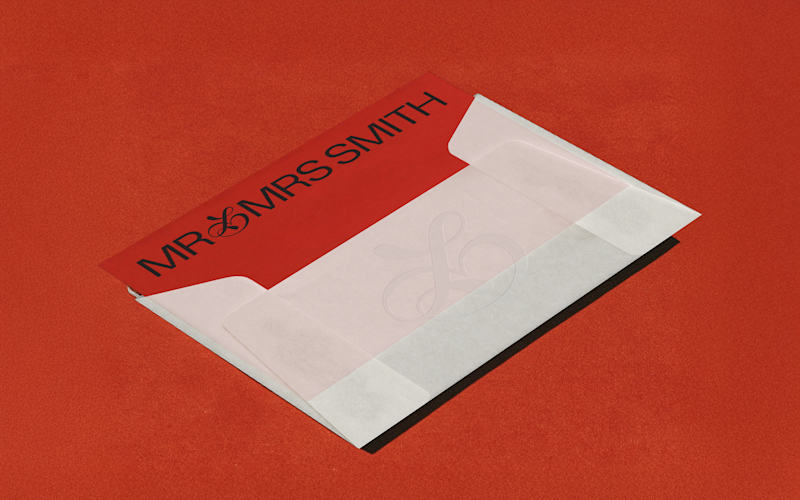Need to know
Rooms
64, including 20 villas.
Check–Out
11am, but flexible, subject to availability. Earliest check-in, 1pm.
More details
Rates usually include a Franco-Sumbanese à la carte and buffet breakfast, served at the beach club, and use of non-motorised watersports equipment. Over the festive period (21 December to 7 January), there's a minimum five-night stay.
Also
Seeking to make meaningful connections between the indigenous Marapu makers and artists from Indonesia and further afield, the hotel runs an artist residency programme. Invitees have included mixed-media weaver Luce Couillet; abstract painter Leona Rose; and brightly hued, Cubism-inspired pieces by Claire Prouvost. Jakarta's Bitte studio designed the modernist residences.
At the hotel
Beach lined with day-beds, beach club, spa and gym, organic farm and school, plant nursery, chicken coop, dairy, charged laundry service, bikes free to borrow, free WiFi. In rooms: Klipsch soundbar, gourmet minibar with an ice well, Indonesian single-estate coffee and tea, custom room fragrance and bath products, Cabas bags, bathrobes, yoga mats, air-conditioning. The Beachfront Suites and up have a Klipsch sound-system too, and each villa has a private swimming pool.
Our favourite rooms
How long would you like to stay? If your answer is – understandably – ‘forever’, well the villas are suited for extended stays with their ample space, private tropical gardens and infinity pools. They’re especially handy if you’re staying with little ones, each coming with a private kitchen. Otherwise the Beachfront Suites fit the bill for a dreamy den, with the sands practically at your door, a can’t-take-your-eyes-off-it panorama of the Indian Ocean, alfresco soaking tub, artwork by French-Indonesian painter Ines Katamso, and a stylish bamboo coffee table by designer Sarah Ellison. But, whichever you stay in, you’ll delight in the considered details: Sumbanese-style carved panels, native paintings and sculptures, symbolic artefacts, bespoke wood and rattan furnishings from Kalpa Taru Bali, ceramics from Gaya – and nods to the owner’s French heritage with Pierre Frey textiles and stacked-stone walls in bathrooms, evocative of the South of France.
Poolside
There are two pools at the hotel: a 33-metre infinity pool with Indian Ocean views at the heart of the action, which – while not strictly adults-only – has a more serene grown-up feel; and a second pool (open 7am–9pm) at the beach club where children can splash about with abandon. All villas have a private infinity pool if you want some more intimate soaking, and the lagoon’s mirror-clear waters are a very enticing prospect.
Spa
At the heart of the hotel, the spa pays homage to local culture in both style and spirit. It’s housed in a building with a peaked roof like the village’s uma mbatangu dwellings (all the better for communing with the spirit world), and treatments are adapted from shamanic healing rituals using wild herbs, flowers and sea salt. And holism goes deeper still here, with visiting practitioners in meditation, mindfulness, nutrition and life-coaching, plus yoga sessions on top of the cliffs or on the beach. A gym has strength and cardio-training equipment too.
Packing tips
Stack your suitcase high with leisurewear of all sorts (swimming costumes, yoga gear, hiking shoes, rash vests), but leave space for numerous new-home accoutrements you’ll pick up in the local villages.
Also
Massage tables can be brought out to your suite or villa on request, and all rooms and residences have a full cocktail-making kit, plus an ice well to get you sundowner ready.
Children
The Little Adventurers club (for children aged 4–12) will blow your little ones’ world views wide open, with activities ranging from astronomy to sustainable farming. Villas are family sized with a handy kitchen, baby kit, and babysitting too.
Best for
The hotel is well kitted out for kids of all ages, but juniors and up will get the most from the experience.
Recommended rooms
Villas have at least two bedrooms, a private pool (the dream), lots of outdoor lounging space and their own kitchen for flexible meal times.
Activities
The Little Adventurers kids’ club (for three to 12 year-olds) is a wellspring of local knowledge that’ll slyly educate smalls as they have fun. They’ll help to grow crops and meet the resident animals in the organic farm, take measures to conserve marine life, make artwork in the local style, cook, compose world music and visit the surrounding villages. Otherwise the beach is peaceful with space to spread out your towels and safe-for-swimming waters in the lagoon.
Swimming pool
The main pool at the heart of the resort has a more adult ambience, but little ones can frolick freely at the beach club pool (just keep an eye on any swim-newbies).
Meals
Julang restaurant’s Michelin meals may be a little OTT for developing palates, but the beach club is more laidback with some child-friendlier choices.
Babysitting
Hotel staff are happy to help book a babysitter as long as you give them 24 hours’ notice.
No need to pack
Owners Fabrice and Evguenia Ivara have children of their own and so understand what on-the-go parents need – be sure to bring the essentials as there isn’t exactly a supermarket down the road, but should you be missing something reception may have it.
Also
Baby monitors are available on request.
Sustainability efforts
When your hotel journey starts with you asking the spirits of the locals’ ancestors for their blessing in a Sumbanese ceremony, it’s only respectful to shoulder the responsibility of keeping the land pristine and traditions watertight. And it’s not something the hotel’s owners or staff take lightly. Throughout you’ll find paintings, carvings, ikat fabrics, ceramics and wood screens decorated with important Sumbanese symbols painstakingly made by artisans on-island and throughout Indonesia. In putting these pride of place, and through village visits and an artist-residency programme in partnership with local craftspeople, the hotel owners hope to raise awareness of the exquisite and meaningful creative work residents excel in. In collaboration with NGO the Sumba Hospitality Foundation, underprivileged youths have been hired as staff, and the hotel’s three-acre organic farm (cultivated by agriculturalist, Philippe Guiglionda) doesn’t just supply the restaurant with the likes of cabai Sumba chillies, papayas, salad greens and tomatoes, but acts as a school for local farmers, where they can learn about plant propagation, nursery skills, garden maintenance, organic farming and permaculture, plus health and safety. It’s naturally fertilised by the hotel’s buffalo herd, staff practice mulching and composting and low-water plants are favoured; a chicken coop provides eggs and there’s a dairy onsite too. While local fishermen sell their catches directly to the hotel. And, in the wider surrounds, non-indigenous weed species are swiftly removed, a hundred palm trees have been planted on the beach, water is treated using an eco-friendly system, and half of the hotel’s energy comes from a bank of solar panels (they aim to reach 85 per cent solar power by 2025). Plus villas are planted with green roofs, and they’ve banned the use of plastic packaging, alongside more Earth-saving ideas for the future.




